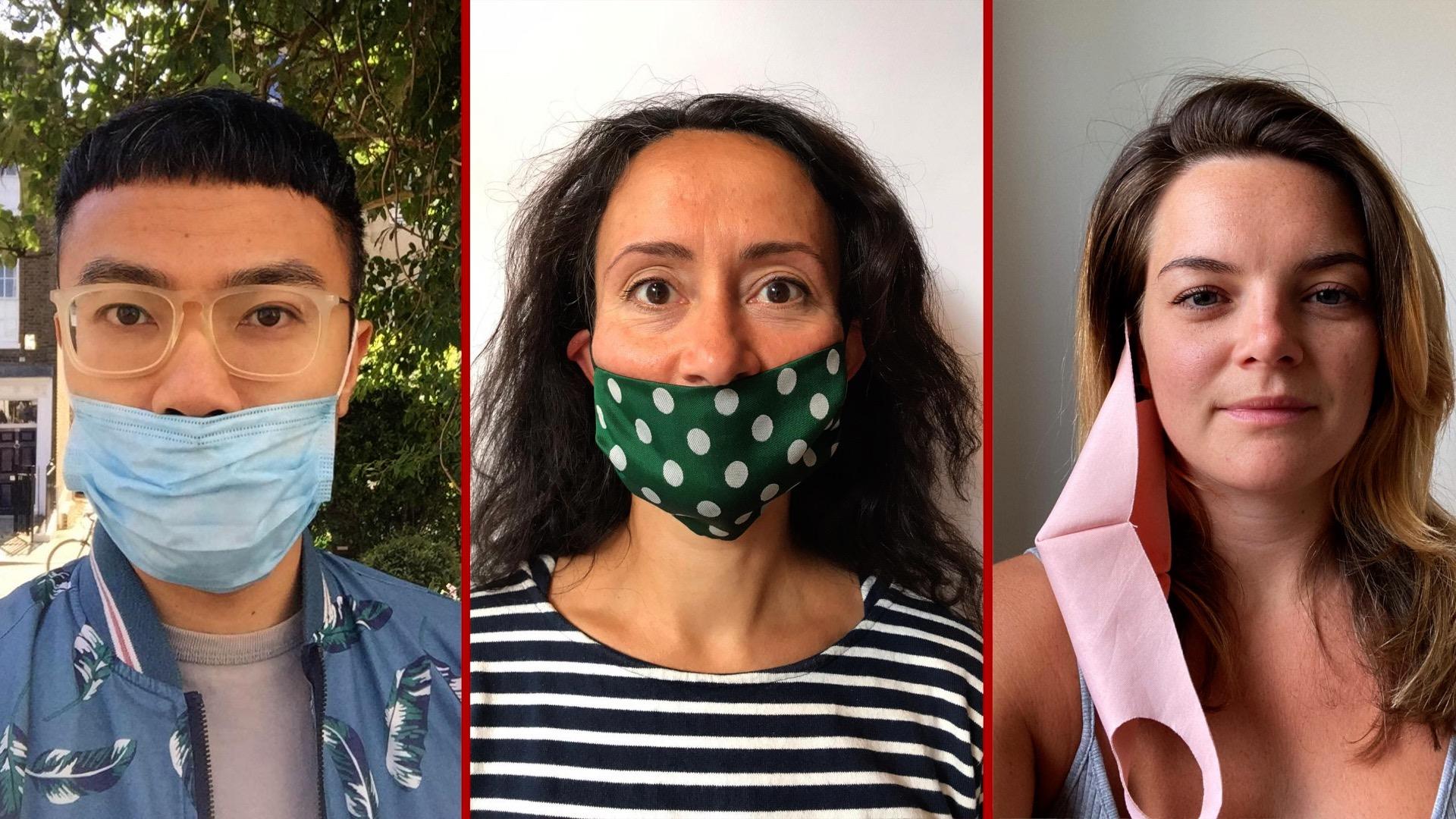Coronavirus: Germany puts on crowded concerts to study risks
- Published
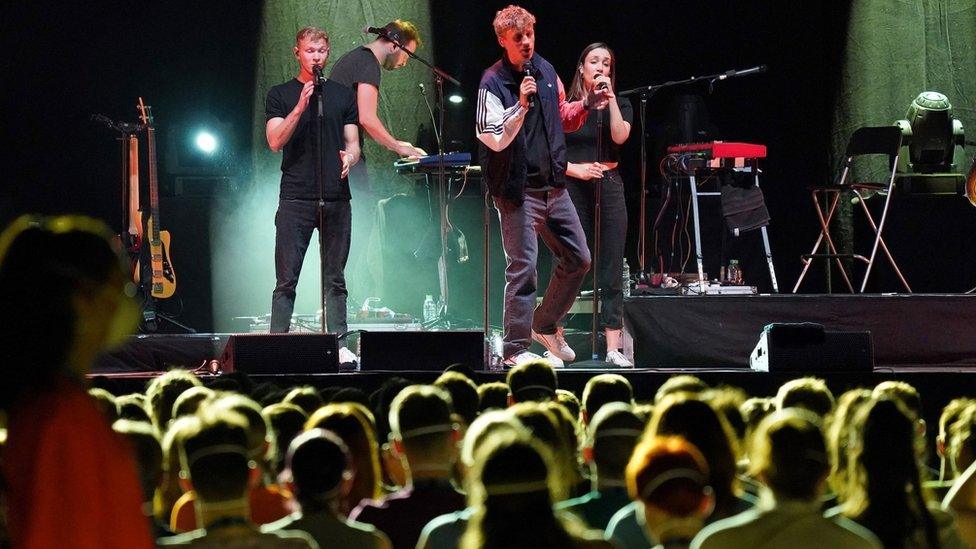
Tim Bendzko performed at all three "concerts"
Scientists in Germany have held three pop concerts in a single day to investigate the risks posed by mass indoor events during the pandemic.
About 1,500 healthy volunteers aged between 18 and 50 - only a third of the expected number - took part.
But the head of the study, which was carried out in Leipzig by Halle University, said he was "very satisfied" with how the event unfolded.
Singer-songwriter Tim Bendzko agreed to perform at all three successive gigs.
The study came as Germany recorded its highest number of Covid-19 infections since the end of April.
More than 2,000 cases were recorded in the last 24 hours, bringing the total number of cases to 232,082, the Robert Koch Institute reported., external
The concert study, called Restart-19, external, was created "to investigate the conditions under which such events can be carried out despite the pandemic", researchers said.
The first of Saturday's three concerts aimed to simulate an event before the pandemic, with no safety measures in place. The second involved greater hygiene and some social distancing, while the third involved half the numbers and each person standing 1.5m apart.
All participants were tested for Covid-19 before taking part, and given face masks and tracking devices to measure their distancing. Researchers reportedly also used fluorescent disinfectants to track which surfaces audience members touched the most.
"The data collection is going very well, so we have good quality data, the mood is great and we are extremely satisfied with the discipline in wearing masks and using disinfectant," lead researcher Dr Stefan Moritz said.
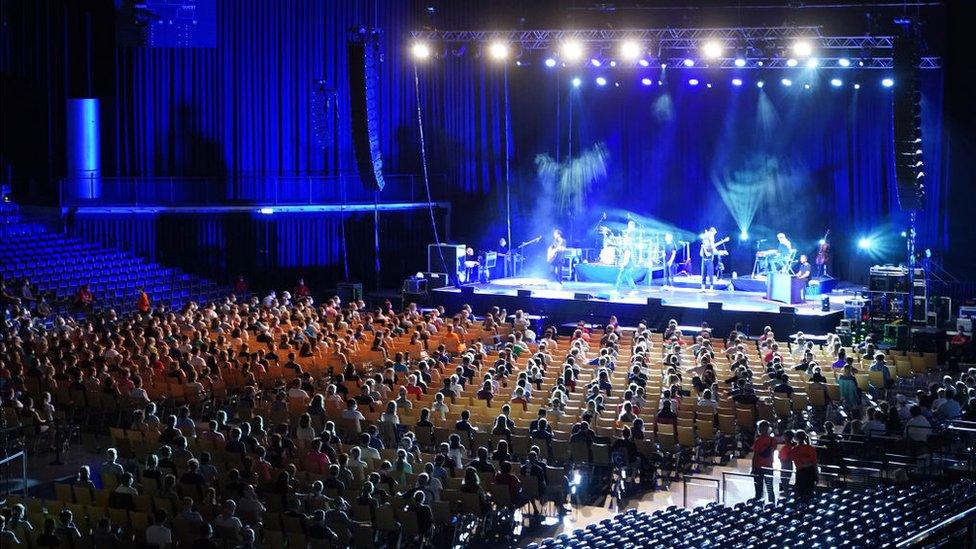
Each of the three events had different levels of social distancing
Singer Tim Bendzko, meanwhile, said the event had exceeded his expectations.
"We really enjoyed it. At first I thought it would be very sterile because of the masks, but it felt surprisingly good," he said.
"I hope that these results will help us to hold real concerts in front of an audience again soon."
The initial results of the study are expected in the autumn.
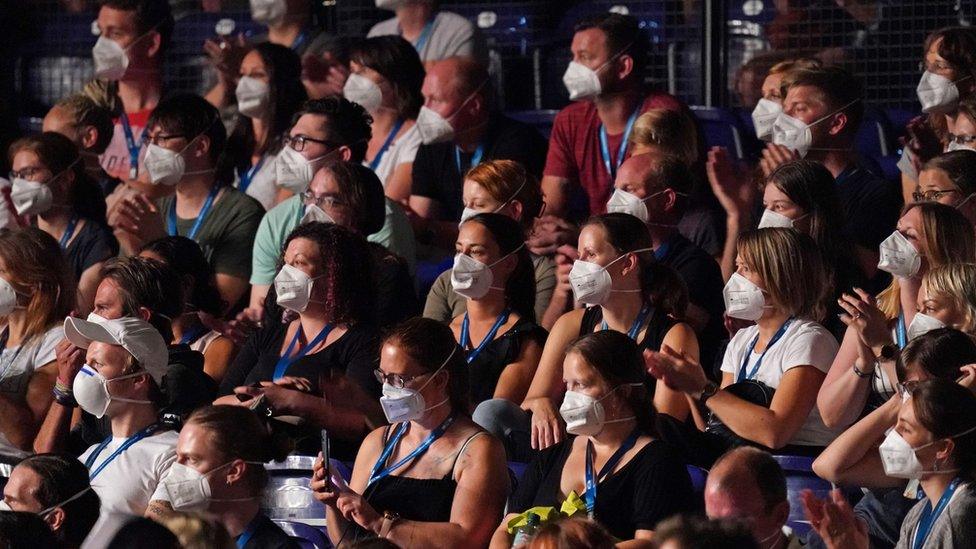
Concert-goers wore protective face masks
The project received 990,000 euros (£892,000, $1.17m) in funding from the states of Saxony-Anhalt and Saxony with the aim of helping to pave the way for the resumption of major indoor sporting and music events by ascertaining realistic levels of risk.
"The corona pandemic is paralyzing the event industry," Saxony-Anhalt's Minister of Economics and Science, Prof Armin Willingmann, said before the event.
"As long as there is a risk of infection, major concerts, trade fairs and sporting events cannot take place. This is why it is so important to find out which technical and organisational conditions can effectively minimise the risks."
How not to wear a face mask
- Published5 July 2022

- Published1 August 2020
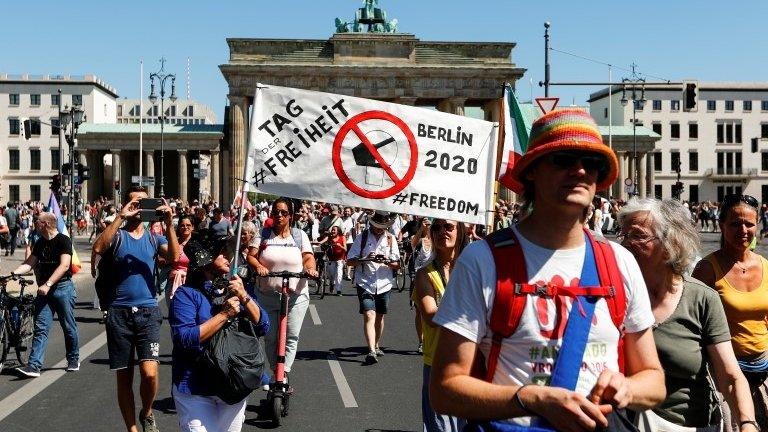
- Published28 July 2020
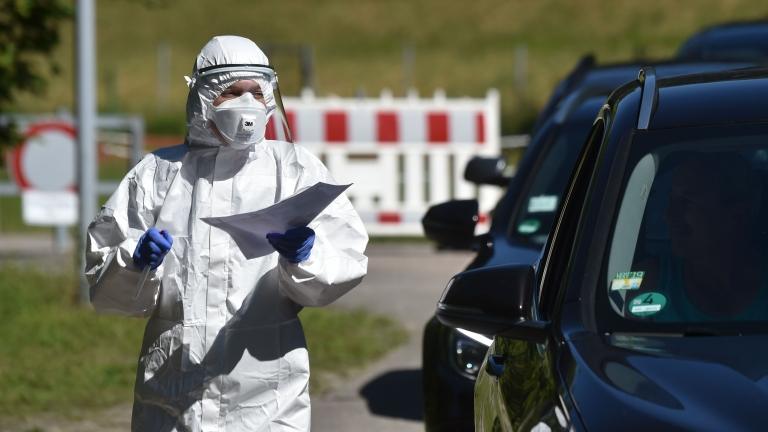
- Published25 August 2020
